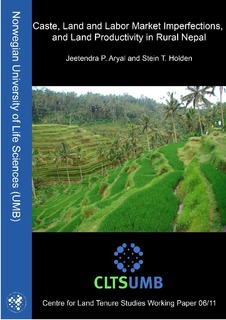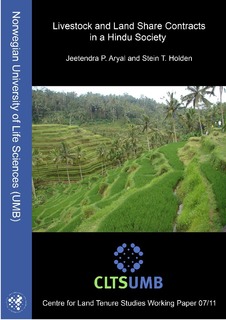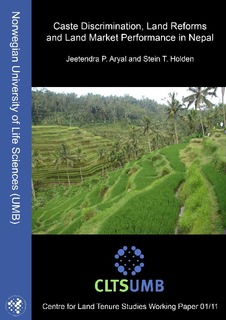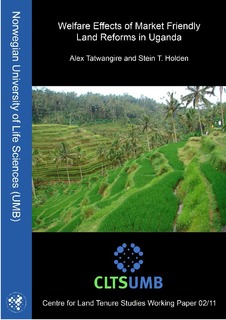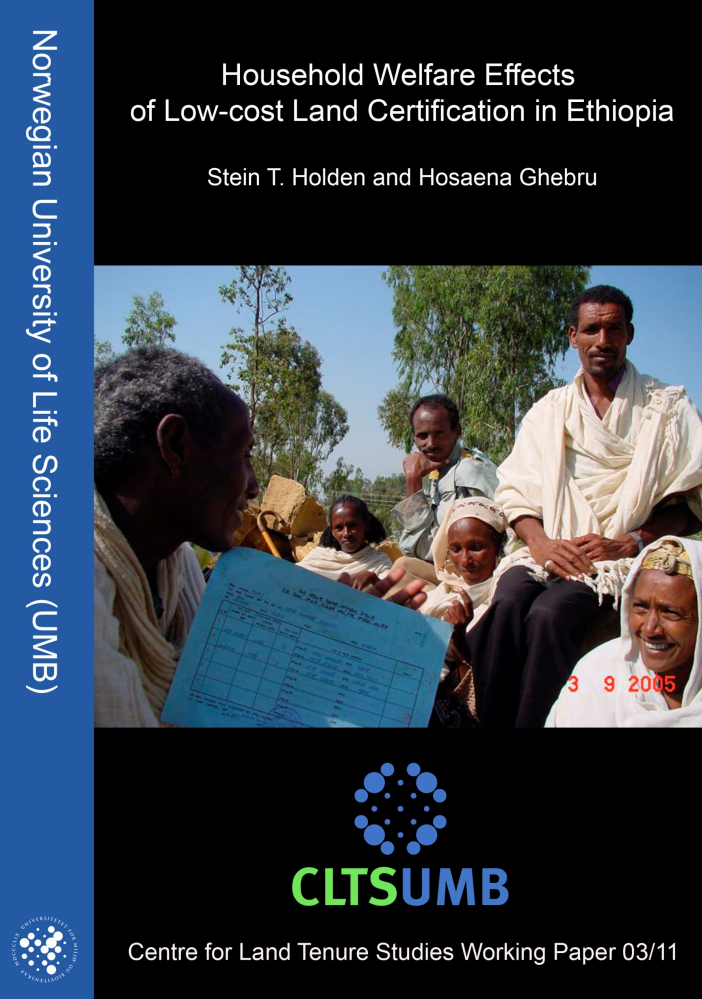Location
NMBU's mission is to contribute to the well-being of the planet. Our interdisciplinary research generates innovations in food, health, environmental protection, climate and sustainable use of natural resources.
About NMBU
NMBU's research is enabling people all over the world to tackle the big, global challenges regarding the environment, sustainable development, how to improve human and animal health, renewable energy sources, food production, and land- and resource management.
Members:
Resources
Displaying 71 - 75 of 98Caste, land and labour market imperfections, and land productivity in rural Nepal
This paper provides new evidence on the caste-related land productivity differential and its explanations in rural Nepal using household plot panel data. Low-caste households are found to have significantly higher land productivity on their owner-operated plots as compared to high-caste households. A comparison between the rented in land of low-caste and the owneroperated land of high-caste households showed that the former has significantly higher land productivity. No significant Marshallian inefficiency was found in the case of low-caste tenant households.
Livestock and land share contracts in a Hindu Society
This paper examines factors related to the existence of a livestock rental market in western Nepal and assesses whether this is associated with caste differentiation and land rental market participation. This study brings new empirical evidence of livestock rental market against the established view that such market does not exist due to moral hazard.
Caste discrimination, land reforms and land market performance in Nepal
The caste system is an intricate part of the institutional structure as well as class formation, political instability and conflicts in Nepal. The most severely discriminated group in the caste system is the Dalits, the so-called “untouchables”. Dalits faced religious, occupational and even, territorial discrimination. They were traditionally excluded from receiving education, using public resources, and had no rights to own land (Dahal 1995; CHRGJ 2005; Haug, Aasland and Dahal 2009).
Welfare Effects of Market Friendly Land Reforms in Uganda
This article estimates the poverty reducing impact of the recent land reforms and land transfers in the different land tenure systems of Uganda. Using balanced panel data for 309 households in 2001, 2003, and 2005, models that control for unobserved household heterogeneity and endogeneity of land acquisition and disposition are employed to measure the poverty-reduction effect of land on household expenditure per adult equivalent.
Household Welfare Effects of Low-cost land certification in Ethiopia
Several studies have shown that the land registration and certification reform in Ethiopia has been implemented at an impressive speed, at a low-cost, and with significant impacts on investment, land productivity, and land rental market activity. This study provides new evidence on land productivity changes for rented land and on the welfare effects of the reform. The study draws on a unique household panel, covering the period up to eight years after the implementation of the reform.


